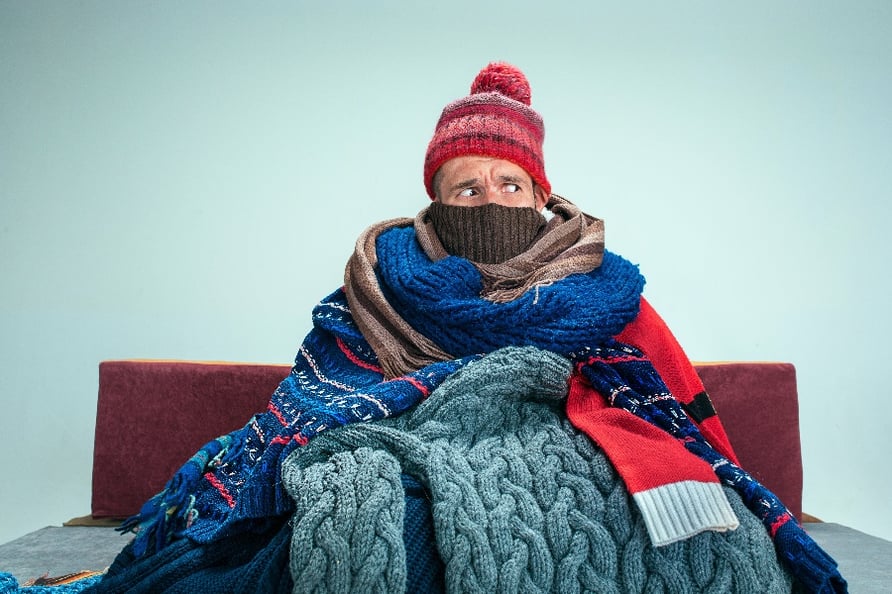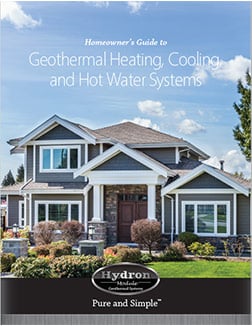Nothing makes you appreciate a warm, cozy home like the dropping temperatures and icy winds of winter. By the same token, nothing makes you despise that weather quite like an HVAC system that doesn't perform up to snuff. An underperforming system can not only cost you your comfort, but it can also result in an unwelcome spike in utility bills. While you may think that smothering yourself in blankets or starting a small fire in the living room is the best way to tackle this issue, but we may have some more effective (and safer) solutions for you!

4 Tips To Boost The Efficiency Of Your Heating System This Winter
Stop Fiddling With Your Thermostat
The amount of programmable and smart-home thermostats on the market seems like it grows every year. Smart home technologies are becoming more and more ubiquitous, with the companies manufacturing these products being valued in billions of dollars. That level of customization and connectivity makes it really appealing to fine-tune the temperature throughout the day, yet this is where many homeowners go wrong.
Forcing a system to modulate the temperature across wide ranges puts a lot of stress on it and may even force auxiliary heat to kick on, which is often times far more expensive to run. Setting separate temperatures - like 71° when you're home, 60° when you're away, and 65° when you're sleeping - forces your system to constantly kick on and off. If you have a traditional heating method, this can be an extremely inefficient process. While modern high-efficiency heat pumps, like geothermal, can manage this task with greater skill and cheaper operating costs, if you're looking for maximum efficiency, we suggest setting a single temperature that you're comfortable with and sticking with it. If you must program separate temperatures, keep the change under 5° difference.
Change Your Filter
Clogged air filters seem like an obvious culprit, but so many people forget to regularly check their filter and even more people neglect to actually swap the filters out. A dirty air filter makes it more difficult for your blower to circulate air throughout your home, which greatly impacts your climate system's efficiency. Unnecessary stress on your heating unit results in higher operating costs, longer runtimes, and ultimately, a shorter system life span. A buildup of dirt and dust can spread to your ductwork and even become a place for bacteria and mold to settle in. No good.
The simple solution? Simply change your air filters! They're relatively inexpensive and can massively impact the way your heating system runs. If you're renting, your landlord or property manager should be able to stock you up. If you own your HVAC system, just look for what is currently installed. Many people recommend you change these filters quarterly, but there are many factors that affect this cycle. If you have carpet, rugs, cloth furniture, pets, or even if you've skimped on the dusting in your home, it's not a bad idea to check your filters monthly and swap as needed.
Clean Your Ducts
Often a symptom of dirty air filters, clogged or dirty air ducts are much more difficult to spot and can cause more significant long-term issues. The inside of air ducts don't see light, so they're quite prone to become the home of molds and fungi. While we're discussing your heating system here, don't ignore the health concerns that come with a dirty air ducts. Poor indoor air quality can result in increased allergies, skin irritations, headaches, and respiratory issues.
Now, those homeowners with radiant, in-floor heating don't have to worry about this specific issue in the winter, but if you're not sure the last time you got your ductwork cleaned, then now is the perfect time to get that done! Find a trusted professional to complete the service, and consult with them on how often to get the service done. If you need help finding a contractor, we'd be happy to direct you to a trusted partner that can help you!
Keep Vents Clear and Doors Open
Unless you're living in an old log cabin, most homes with central heating and AC are designed for optimal airflow. These days, it's still a common idea that closing air vents in seldom-used rooms in the home conserves energy. It seems like a good idea, after all, that warm air has to go somewhere, right? Unfortunately, blocked or closed air vents don't save any money on heating, and can cause increased pressure in your ductwork. This leads to leaks in the ducts and uneven air flow throughout the home.
To fix this, go through all vents in the home and make sure they're open and clear. Furniture should not be covering these vents, so pull any items a few inches away from the wall to help the air flow if there is no other place for it. This same concept applies to doorways, so ensure that all doors are at least cracked, ideally fully open. This will allow your home the best possible flow of heat energy, reducing the strain on your heating system.
Whether you have a furnace, boiler, air-source heat pump, or geothermal heat pump, routine maintenance is the best preventative medicine. However, these things will help you set your heating system up for success while keeping you and your family efficiently cozy! If you're really interested in efficiency, you might be interested in the most efficient heating, cooling, and hot water technology on the market: Geothermal! Read more about that below in our free homeowner's guide!


